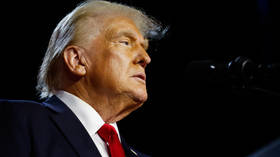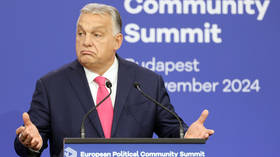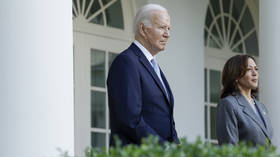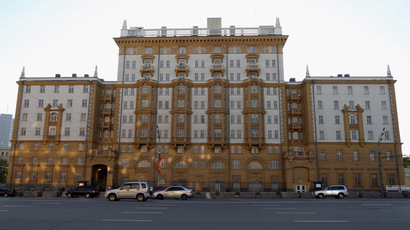Constitutional Court turns down NGOs’ complaint over ‘Foreign Agents’ law
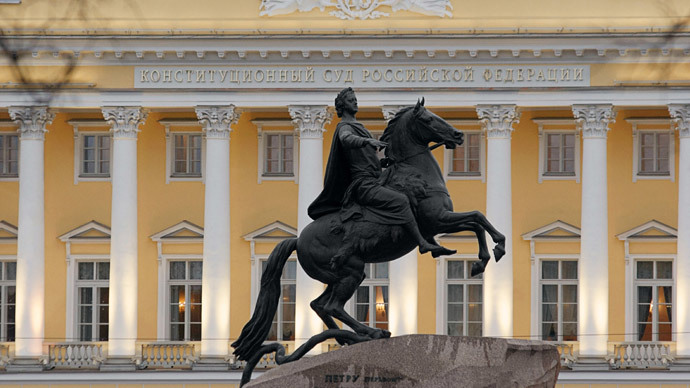
Russia’s highest court has ruled that last year’s law on foreign agents is in line with the Constitution, but recommended lowering the fines for NGOs that violate it.
The complaint against the Foreign Agents law was been lodged by four Russian NGOs in August 2013, less than a year after the bill obliging any politically-oriented group that accepts foreign funding to register as a foreign agent came into force. Activists attempted to present the law as discriminatory and pointed out that it lacks a precise definition of ‘political activity’, giving rise to misunderstanding and conflicts.
On Tuesday, Russia’s Constitutional Court rejected the complaints, saying the law did not order any punishment for foreign-sponsored NGOs, but only required simple registration, and therefore there was no evidence of discrimination. The ‘foreign agent’ title is neutral and does not indicate some threat to the state towards its citizenry, and the requirement cannot be considered a sanction, the ruling reads.
Judge Sergey Knyazev also noted that the discrimination complaint lacked grounds because the law applied not to all foreign–sponsored organizations, but only to those engaged in political activities.
The court also explained that the NGOs activities must be considered as political if they are aimed at influencing the policies of the state, including the forming of public opinion for this purpose.
“Without such objectives groups cannot be considered foreign agents even if they are critical of the authorities or stir up oppositional sentiments in the society,” it said.
The court also noted in its ruling that the current minimum punishment for failure or refusal to register in time (300,000 rubles or about US$8,300) was against the constitution as it did not allow lower punishment and contradicted the principle of individual responsibility. It recommended a lowering of the minimum fine to eliminate this contradiction.
The Foreign Agents law has drawn a lot of criticism from Russian and international rights communities, even in its preparatory stages. The criticism became especially vocal after the law was passed and the Justice Ministry, together with prosecutors, launched a major nationwide check on all non-profit organizations.
Critics said the ‘foreign agent’ label was damaging to reputations and complained that foreign funding sources began wrapping up sponsorship programs after the new rules were introduced.
The sponsors of the bill and senior Russian officials several times repeatedly denied the accusation of labeling and discrimination, saying that the law was introduced in the interests of the Russian public, who had the right for full information about the organizations that attempt to influence national politics.



